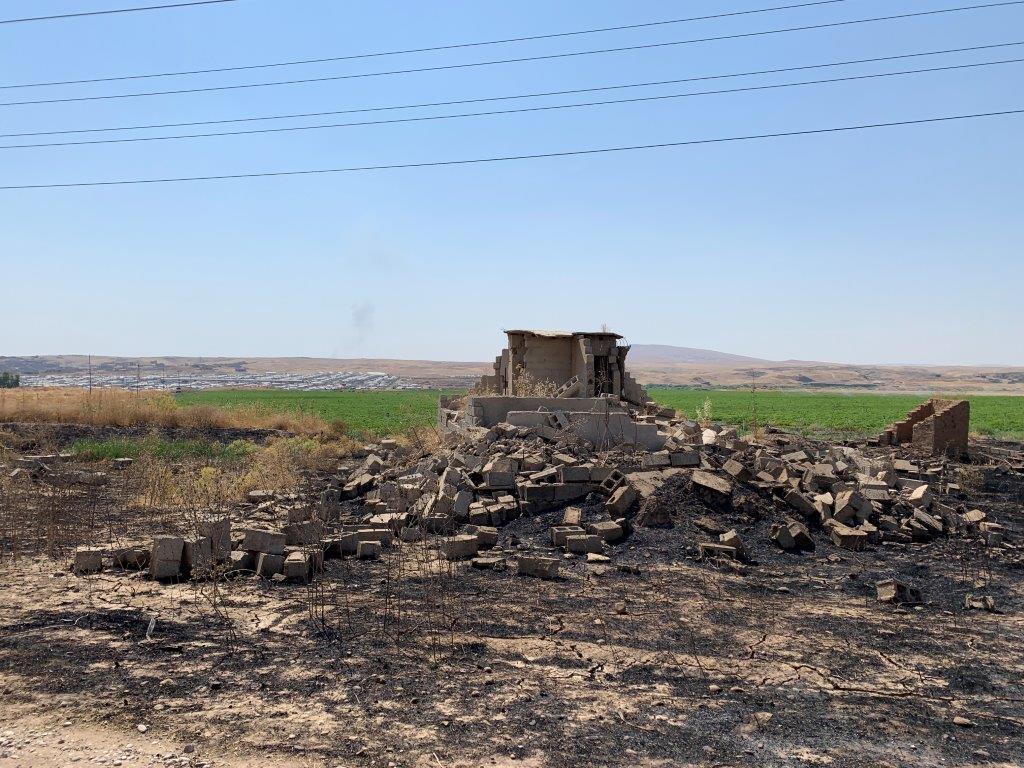The Human Rights Watch (HRW) organization has accused Kurdistan Regional Government (KRG) authorities of preventing about 4,200 Sunni Arabs from returning to their homes in 12 villages east of Mosul.
In a report published on Friday, HRW said “more than three years after the Hamdaniya district was retaken from the Islamic State, in one area KRG authorities have only allowed Kurdish residents and Arabs with KRG ties to return, in violation of international humanitarian law.”
The acting Middle East director at Human Rights Watch Lama Fakih criticized the KRG saying that “The fact that the KRG is permitting Kurdish and well-connected Arab residents back suggests that these villagers are being improperly punished.”
As many as 3,400 Sunni Arabs who had fled Mosul after it was overran by the Islamic State group in mid-2014, and have been residing in IDP camps are seeking to return home.
Meanwhile, A KRG official denied the accusations, stressing that residents were free to return to their homes, but provided Human Rights Watch with a list of Ninewa villages that were difficult to return to, identifying six from Hamdaniya as “blocked” for return.
“Dindar Zebari, the KRG’s coordinator for international advocacy wrote on August 10 in response to a Human Rights Watch letter that in the 15 villages Human Rights Watch investigated, population counts showed that there had been few or no returns to 6 of the villages and minimal returns to 2. In 4 villages, about half the population had returned. In only 3 villages had all or nearly all residents returned. Residents blocked from returning said that these 3 villages were either predominantly Kurdish or had Arab residents with strong KRG ties,” the report added.
HRW also said that “satellite imagery analysis shows that since 2016 the KRG military forces, the Peshmerga, have deployed and built significant military infrastructure in four of the villages, none of which have received significant population returns.”
The organization urged Kurdistan Region authorities to “immediately remove all restrictions preventing the return of residents where there is no military necessity for doing so and investigate government officials who have been preventing lawful returns.”
The Report indicated that “Human Rights Watch has conducted three investigations into the KRG’s prevention of returns to the Hamdaniya district since 2016, most recently in June 2019, when we interviewed 11 Arab residents of Hasansham camp from the villages of Hasansham, Manquba, Shirkan, and Tal Aswad.”
The KRG has provided a range of reasons for blocking return of IDPs, including, inadequate services, unexploded ordnance, uncleared landmines, property destruction; social conflicts and property and land ownership issues, concerns about attacks by villagers who had joined IS.
“Under international humanitarian law, the forced displacement of civilians is prohibited except when necessary to protect civilians or for imperative military reasons, and then only for as long as needed. Possible future hostilities are not a lawful basis.”
According to camp management, three camps in the Hasansham and Khazir areas are holding about 3,400 displaced people from 11 surrounding villages, according to camp management.
Meanwhile aid workers indicated that another 800 people, including some from a twelfth village, were living outside the camp in another location. Some of the villages are historically Arab while others are mixed Arab-Kurdish.





